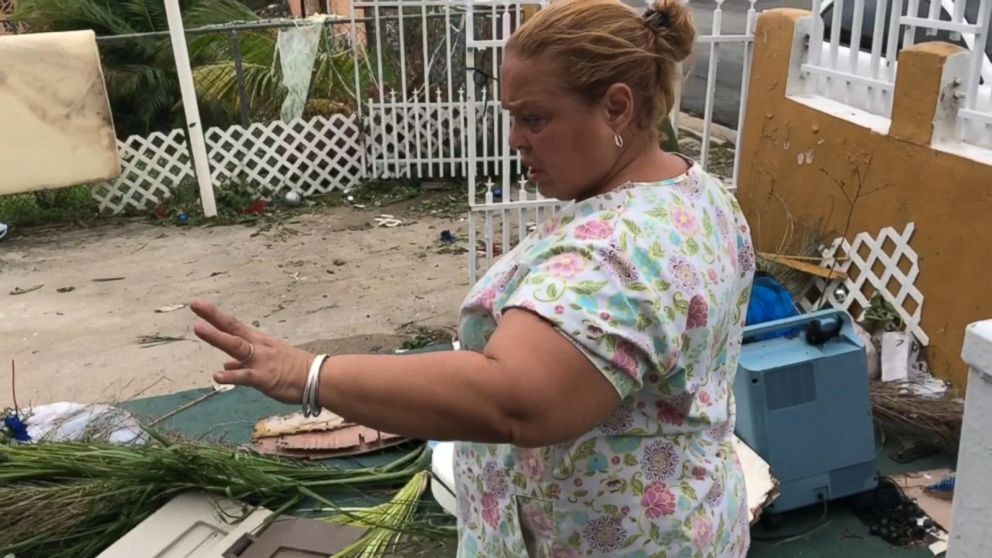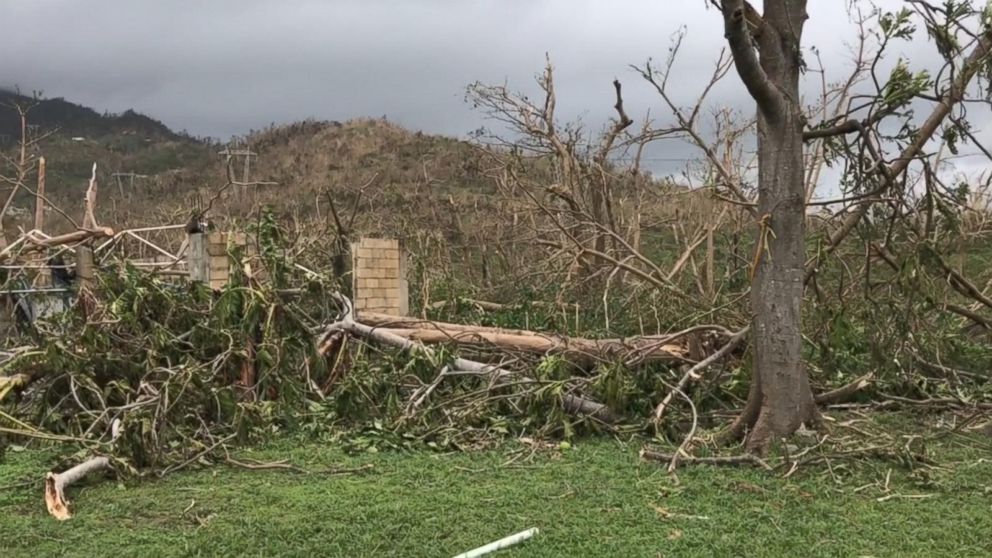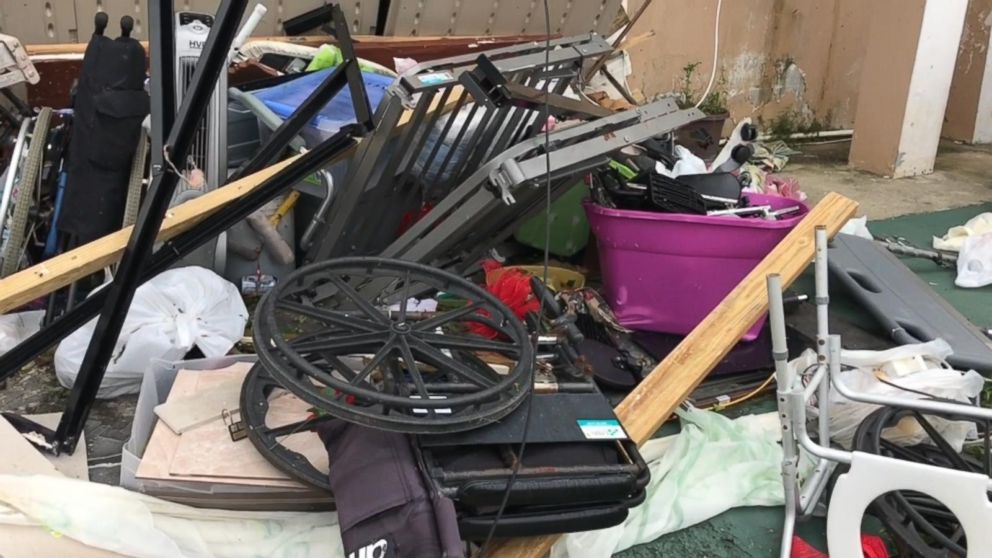'We can't let them die': Caregiver pleads for aid for sick, elderly in hurricane-ravaged Puerto Rico
Maria Ortiz said the site faced dire conditions without food, water and fuel.
— -- In Puerto Rico, nursing home caregiver Maria Ortiz is trying desperately to get ahead of the suffering her patients may face if she doesn't get aid and supplies quickly for them.
"I want the world to know there's a lot of old people here in Puerto Rico [and] that they need help ... We can't let them die. We can't let them die. And, we need all the help we can get," said Ortiz as she stood in a line for water. "We need help. We need diesel for the generator. We need electricity. We need water."
Maria came ashore as a catastrophic Category 4 hurricane on Wednesday, hitting the island with devastating winds and torrential rains. At least six people have been reported killed so far in the most powerful storm to strike Puerto Rico since 1932.
Hurricane Maria leaves trail of death and destruction in the Caribbean
In an emotional interview Thursday, Ortiz pleaded for help for her patients, asking for water, diesel for the nursing home's generator, food and oxygen.
She brought ABC News to the nursing home, situated in a residential neighborhood. The grounds were still wet and littered with debris and flattened, dead trees. Ortiz also pointed out the lone generator, droning loudly, on the side of the home.
"This is terrible," she said.

Puerto Rico's emergency management agency said Wednesday that 100 percent of the island had lost power, noting that anyone with electricity was using a generator. Authorities said telecommunications throughout the island had also collapsed.
Ortiz told ABC News that she had no way to even communicate with her family on the island though she said she could see her relatives' house from the nursing home.
"I think they're OK because during the night I can see ... And I see light [in the house]," she said of her relatives. "They don't know nothing about me. I just know because I see light so I say, 'They must be OK.'"

As she walked through the nursing home, checking on residents, Ortiz said she was worried about them and felt responsible for their livelihood.
"We're giving them what they need. ... We're taking care of them," she said. "All they have now is me and my personnel here. That's all they have."
Ortiz said that while no patients were suffering at the moment, the nursing home could face dire conditions eventually, especially if the generator went out or she couldn't get more fuel.
"I need my diesel," she told ABC News. "I'm worried about my residents cause I care ... If I can do something and I can get help now, before something happens, I want to do what I have to do, you know."

ABC News' Rob Marciano and Bartley Price contributed to this story.




